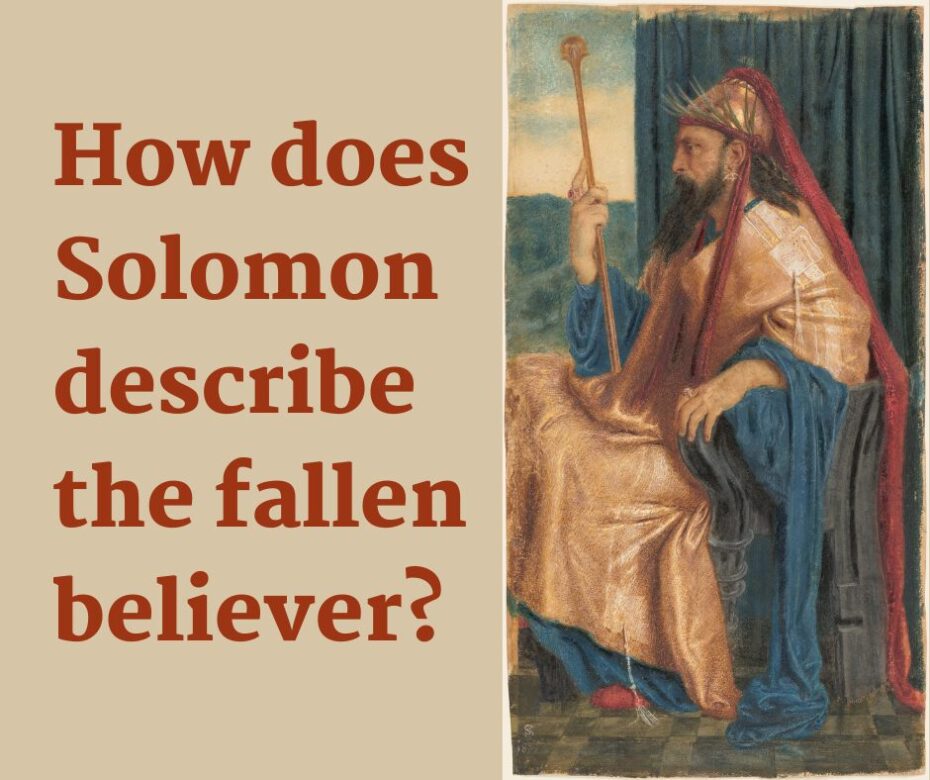A large segment of Evangelicalism maintains that a believer cannot wander from the truth. That would include wandering from doctrinal truth or falling into serious moral failure. Free Grace people understand that is not the case. The Bible clearly shows that a believer can fall into any sin or heresy. The Prodigal Son is a warning of serious moral failure on the part of a child of God (Luke 15:11-21).
Second Peter 2:20-22 describes the fate of a believer who wanders away from the truth. Peter says it is like a dog that returns to his vomit or a pig that has been washed and later rolls around in the mud. Here is how Peter summarizes it: “For if, after they have escaped the pollutions of the world through the knowledge of the Lord and Savior Jesus Christ, they are again entangled in them and overcome, the latter end is worse for them than the beginning.”
Without a doubt, Peter is talking about a believer. Of course, he is not saying that the believer who wanders into such moral error loses his salvation. That is impossible. But such a Christian’s experience and sanctification will be tragically impacted. It can only be described as living in death. It can even lead to an early physical death (Jas 5:19-20). The Prodigal Son is an example of where wandering from the truth can lead.
Recently, I found an OT verse that teaches these same principles. In Prov 21:16, Solomon warns young people to listen to his teaching. He tells them: “A man who wanders from the way of understanding will rest in the assembly of the dead.”
In the book of Proverbs, the “way of understanding” is a life based upon the wisdom of God’s Word. It refers to how one lives. The book emphasizes the benefits of being taught and obeying the truths found in God’s Word. Such a life brings all manner of blessings. It is a life based upon fearing God (Prov 1:7).
A fool is a person, believer or unbeliever, who does not live that way. The fool experiences all kinds of problems. In the verse immediately before 21:16, Solomon says that “destruction” will come upon the one who lives wickedly (21:15b).
Solomon says that a person can start out on the path of wisdom. He can start off well. But then he can wander from that path. Many Evangelicals today would refer to that as “backsliding.”
Solomon paints a graphic picture of what that means. We can almost hear Peter’s description of a dog eating its own vomit, or a clean pig rolling around in the mud. Peter says such a person—such a believer—rests in the “assembly of the dead.”
In Proverbs, the one who wanders from the truth finds himself in the company of others like himself. They are a company of fools. It is an assembly of death. They are throwing themselves a party in the grave. I picture a bunch of skeletons with dirty clothes hanging off their bones eating at a buffet. We can practically hear James yell, “Amen! That’s exactly what I’m talking about!”
These fools are “resting” there. It is difficult not to hear John’s words that the believer who sins “abides” in death (1 John 3:14). That is his ongoing and daily experience.
Can a believer wander from the truth? Can he fall away morally or doctrinally? Solomon, James, John, Luke, and Peter all answer, “Absolutely.” While such a believer will not lose eternal life, who would want to be a part of the assembly he hangs out with this side of eternity?


